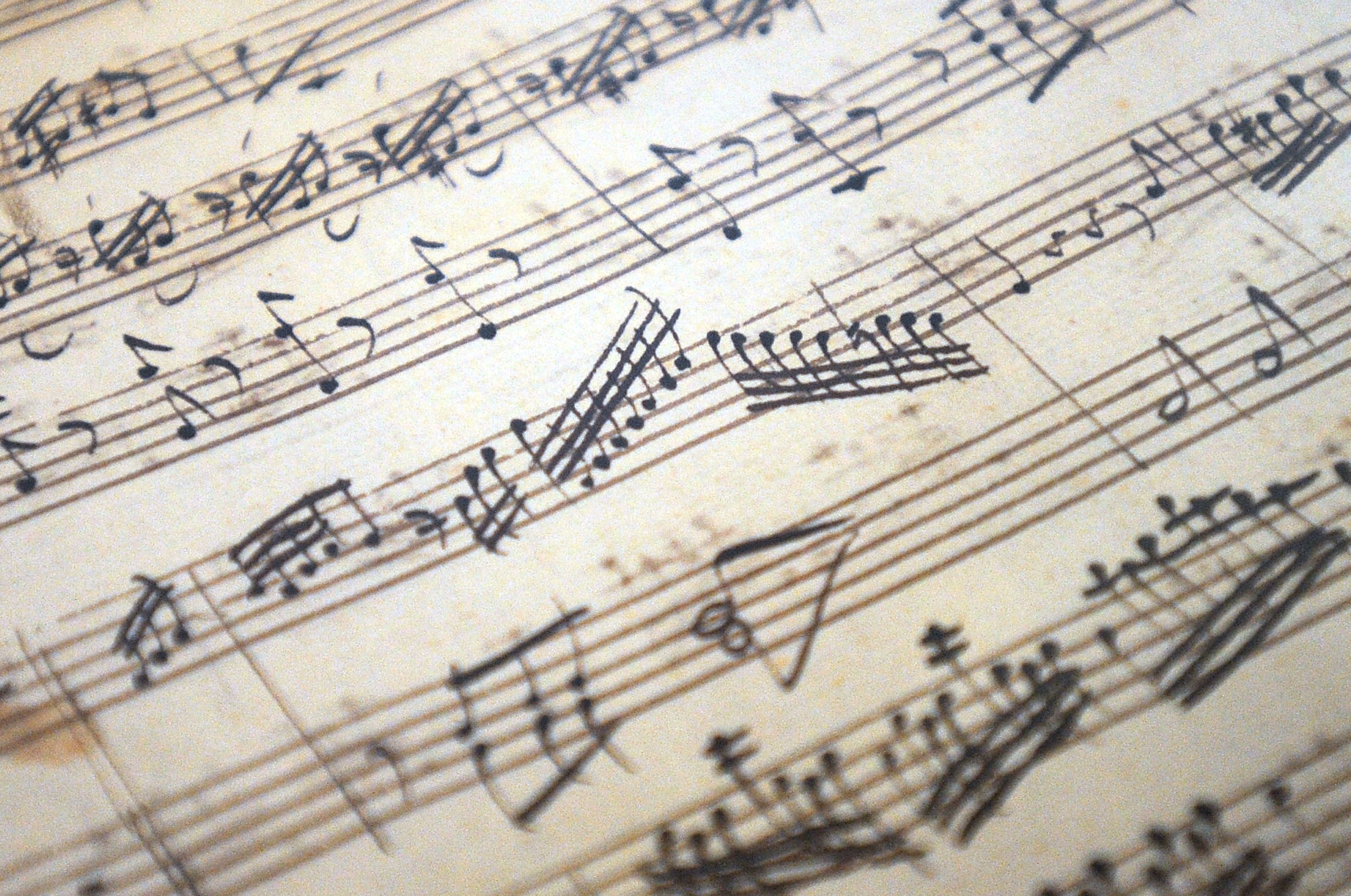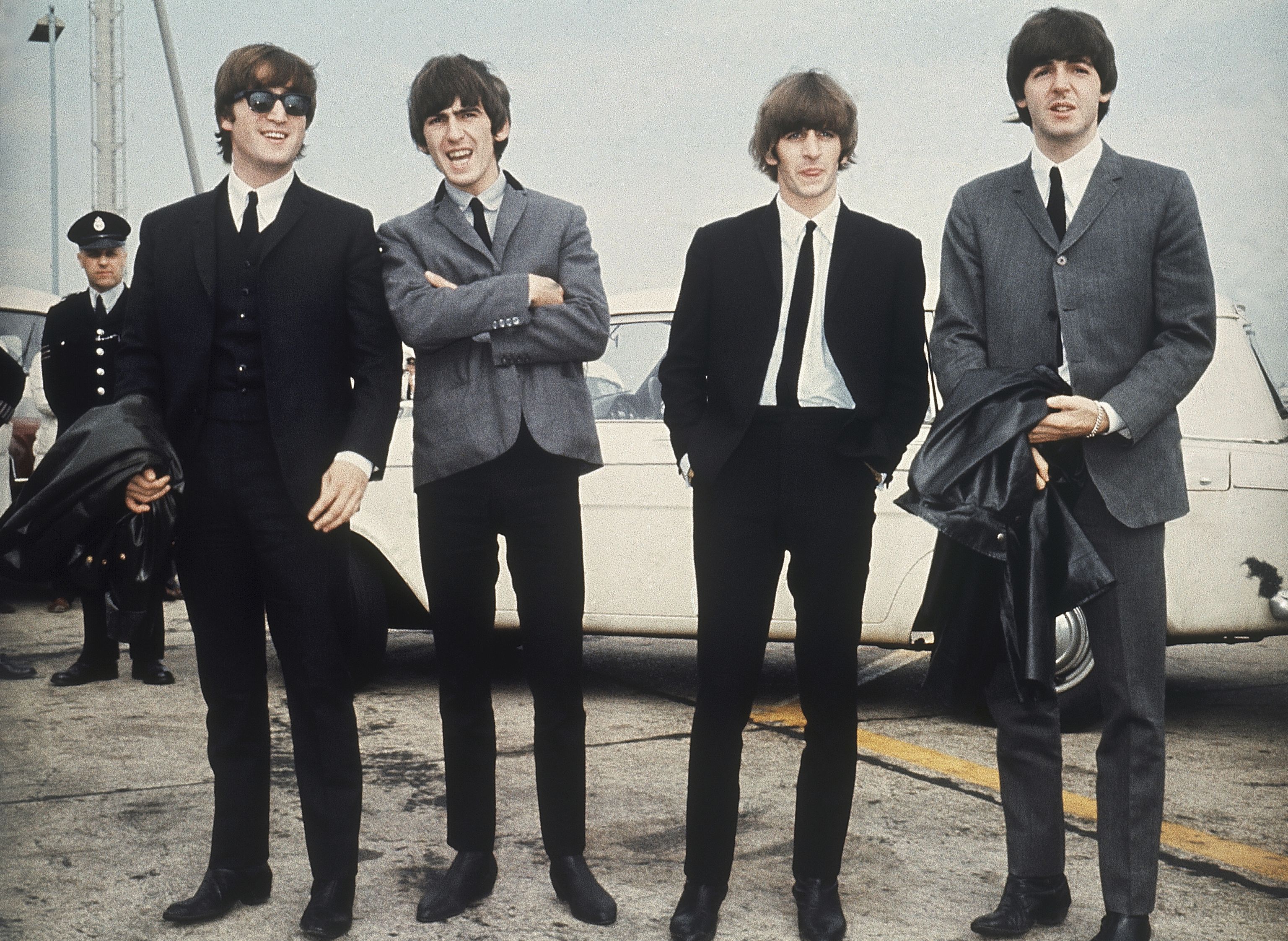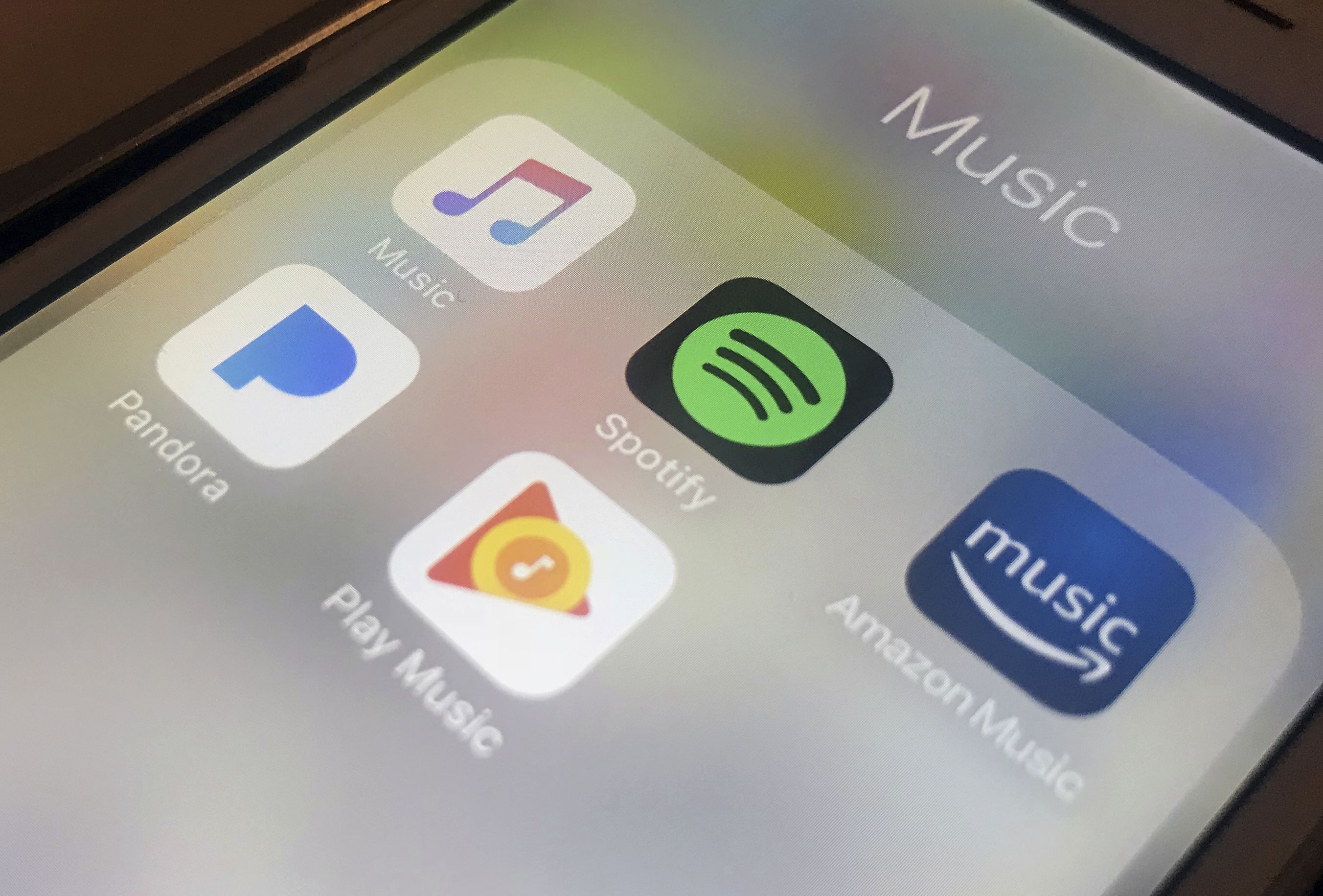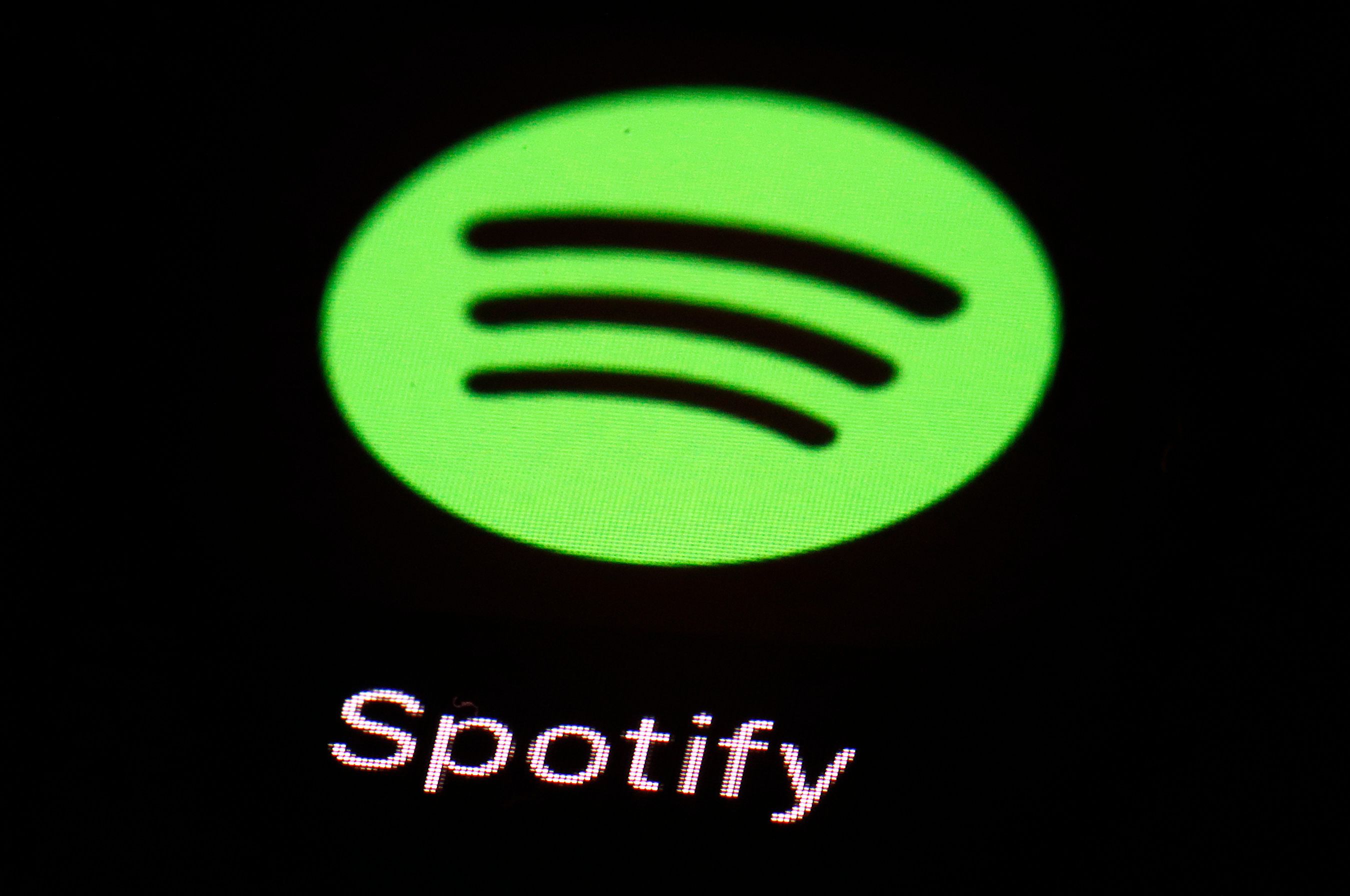A Musical Metamorphosis
A look at how artificial intelligence is reshaping the music industry
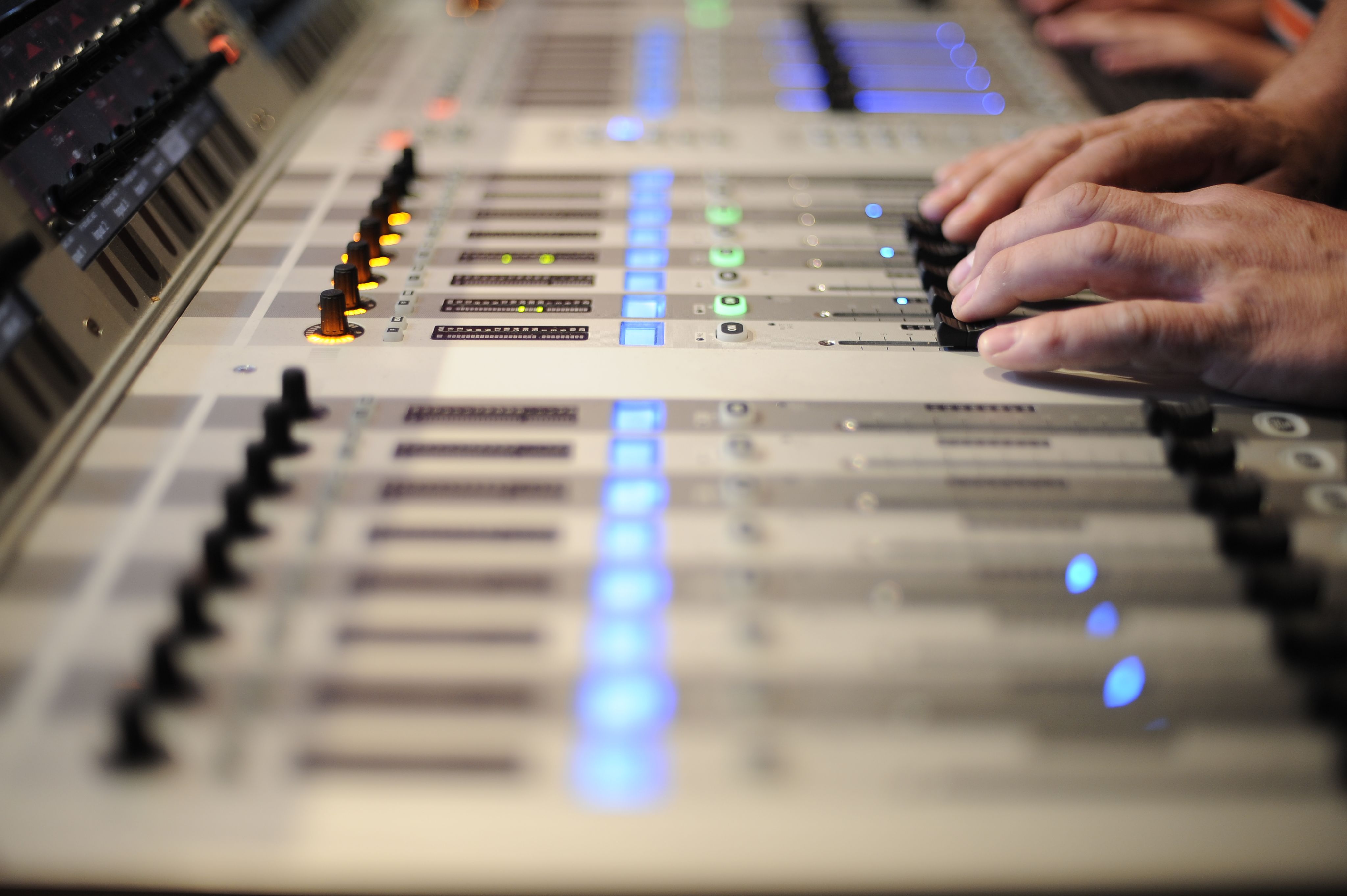
Across the globe, a line of freshly pressed blue-green vinyl sits on the shelves of neighborhood record shops. Eager fans fill the stores, anxious to get their hands on their new favorite tracks. They speak excitedly as they wait in line to buy a vinyl, sharing memories of beloved songs. Overhead, a speaker echoes with the current No. 1 single on the UK’s Official Singles Chart, featuring the soulful vocals of John Lennon harmonizing effortlessly with his fellow bandmates. Fans who have already learned the lyrics in the 12 hours since the song’s release sing along in a melodic chorus, their voices resonating. Beatlemania takes the record shops by storm.
But this scene did not occur in 1970.
It occurred in November 2023.
And The Beatles were thought to be a band of the past.
John Lennon and George Harrison are dead. The band is survived solely by Paul McCartney and Ringo Starr. So how can there be a new Beatles song, featuring all four of the original band members, released in 2023? The answer lies within artificial intelligence.
FILE - The Beatles, from left, John Lennon, George Harrison, Ringo Starr and Paul McCartney arrive in Liverpool, England on July 10, 1964, for the premiere of their movie "A Hard Day's Night." (AP Photo, File)
FILE - The Beatles, from left, John Lennon, George Harrison, Ringo Starr and Paul McCartney arrive in Liverpool, England on July 10, 1964, for the premiere of their movie "A Hard Day's Night." (AP Photo, File)
"In 2023 to still be working on Beatles music, and about to release a new song the public hasn't heard, I think it's an exciting thing."
Back in June 2023, McCartney sparked conversation when he announced that he and Starr had recorded “Now and Then,” the final Beatles song, with the help of artificial intelligence, or AI.
“It was a demo that John had that we worked on, and we just finished it up. We were able to take John’s voice and get it pure through this AI, so then we could mix the record as you would normally do,” McCartney told BBC’s Best of Today Radio. “It gives you some sort of leeway, so there’s a good side to it, and then a scary side, and we’ll just have to see where that leads.”
Collaborating with producer Giles Martin, son of legendary Beatles producer and "fifth Beatle" George Martin, McCartney and Starr orchestrated the record using Lennon’s demo as the song’s foundation. Starr is featured on the drums, complemented by McCartney, who not only completed the song’s lyrics but also contributed to vocals. To infuse a touch of Harrison’s artistry, Martin incorporated some of Harrison’s previous guitar recordings taken from when “Now and Then” was originally considered for release on “Anthology 3,” a compilation album unveiled by The Beatles in 1996.
Incorporating Lennon’s voice on the final track proved to be more difficult and required the use of artificial intelligence. Employing the identical AI software utilized by director Peter Jackson in the Get Back documentary series to enhance audio clarity, the producers successfully isolated and extracted Lennon’s vocals, ensuring his distinct voice could meld seamlessly within the final composition.
“The very original recording is just John playing the piano with TV in the background,” Martin told World Cafe. “That’s part of this technology – we could now extract John from the piano and the television.”
Many Beatles enthusiasts raised concerns about the production process, fearing that Lennon’s vocals might have been artificially generated – something that some fans argued undermined the soul of the original songs released by the “Fab Four.” The criticism led McCartney to clarify the production process on X, formerly known as Twitter.
“We’ve seen some confusion and speculation about it. Seems to be a lot of guess work out there,” McCartney wrote about the track. “Can’t say too much at this stage but to be clear, nothing has been artificially or synthetically created. It’s all real and we all play on it. We cleaned up some existing recordings – a process which has gone on for years.”
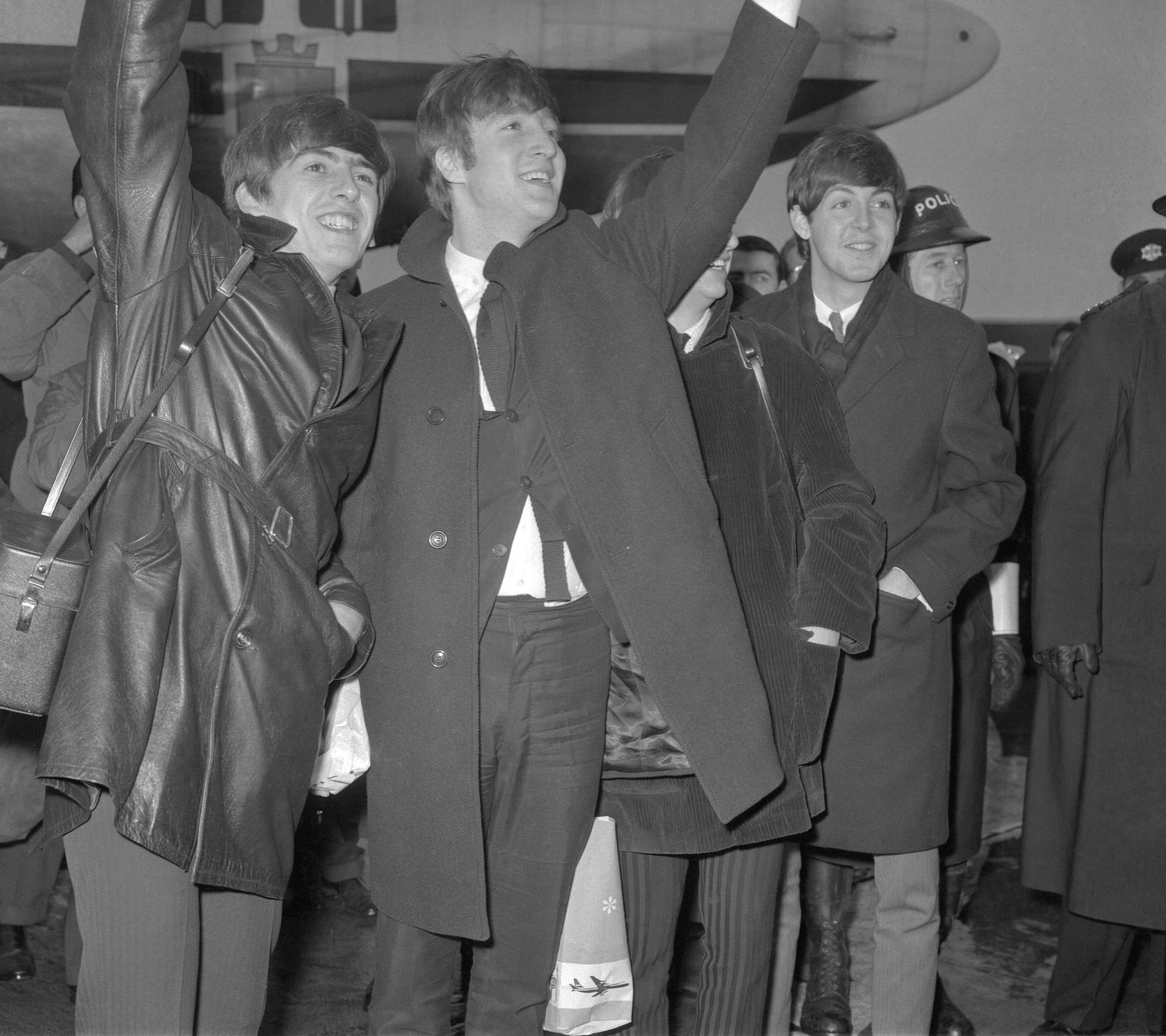
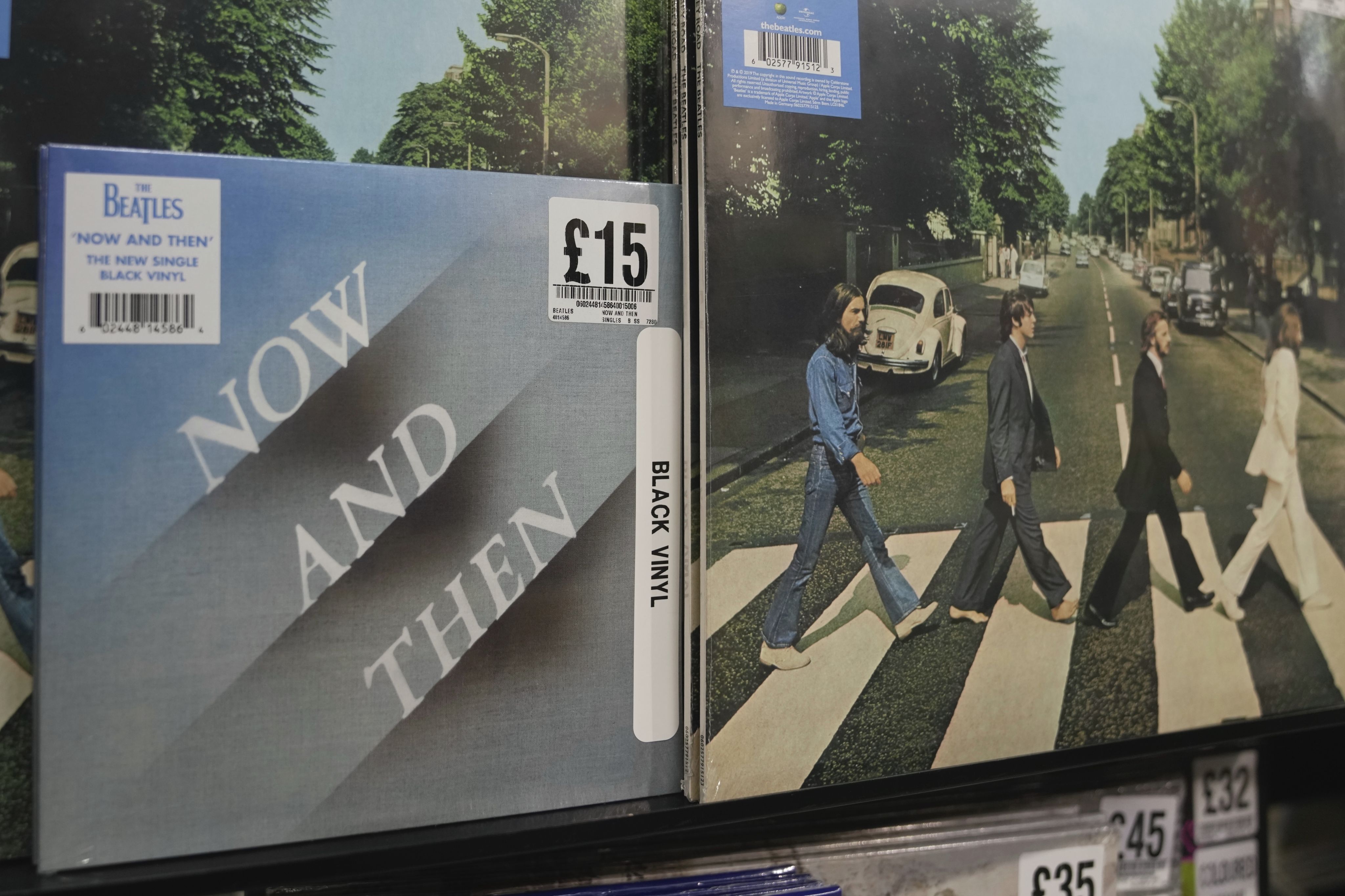
Nevertheless, AI's integration in the production of “Now and Then” has expanded the global dialogue surrounding the rapid advancement of AI, extending the conversation to the music industry realm.
It is important to note, however, that the use of AI in music production is not new.
Artificial intelligence, in a less sophisticated form, has been in use since the 1970s. Music programming, drum machines and sequencers, all forms of artificial intelligence, are the foundation of the electronic music that society listens to today, according to SIXFOOT5, a New York-based songwriter and music producer.
“We see [artificial intelligence] in a different light today through the media and hysteria, with how advanced AI has gotten,” SIXFOOT5 said. “It has evolved from simple machine drum patterns into sample libraries, vocal cloning, as well as still being able to develop rhythms, melodies and patterns for producers.”
Been great to see such an exciting response to our forthcoming Beatles project. No one is more excited than us to be sharing something with you later in the year.
— Paul McCartney (@PaulMcCartney) June 22, 2023
We’ve seen some confusion and speculation about it. Seems to be a lot of guess work out there. Can’t say too much…
Because of AI, today's artists and producers can experiment with new technologies, changing how music is written, produced and delivered to audiences.
Kristin Robinson, a music publishing producer for Billboard, explained that AI can be used for a variety of purposes in the music industry.
“So far, songwriters have started using AI voice filters to help them pitch records to artists. Others might use AI services like Soundful, BandLab SongStarter, Stable Audio and others to help them get ideas started,” Robinson said. “Some artists without access to real sound engineers might use AI mastering services, like that available from FL Studio, to help polish a finished product and get it ready to release. Some play around with voice models, like GrimesAI, for fun. Some will use voice models to aid in translating a song into different languages, like Lauv recently did.”
This Jan. 28, 2018, photo shows music streaming apps clockwise from top left, Apple, Spotify, Amazon, Pandora and Google on an iPhone in New York. (AP Photo/Jenny Kane)
This Jan. 28, 2018, photo shows music streaming apps clockwise from top left, Apple, Spotify, Amazon, Pandora and Google on an iPhone in New York. (AP Photo/Jenny Kane)
One of the most significant developments concerning artificial intelligence in the music industry involves voice synthesis, a form of generative AI that allows artists to manipulate their voice to sound like a specific person. This technology lets artists upload samples of any singer to a voice synthesis platform. Once uploaded, artists can transform their own vocals to replicate the voice of any chosen singer, creating the illusion that the designated artist is performing their song.
Ghostwriter, an anonymous TikTok music producer, made waves on the internet when his song, "Heart on My Sleeve," went viral for using voice synthesis AI. Ghostwriter generated the voices of Drake and The Weeknd without their knowledge and garnered millions of likes across YouTube and TikTok.
The video was removed after a copyright lawsuit was filed by Universal Music Group, raising questions about how artists can protect their voice and image in a society where their vocals can be manipulated with a simple click of a button.
“I think Ghostwriter’s ‘Heart on My Sleeve’ really woke the industry up to just how confusing and uncontainable this technology will be for artists,” Robinson said. “The PR implications of this are pretty scary if you’re an artist. What if someone used this tech to make it sound like you said horrible things or even just things that are untrue? As an artist, a large part of your role is curating yourself: choosing which songs you want to release, choosing cover art, music video direction, styling and more. This makes it much harder to control.”
To protect their artists from generative AI exploitation, Universal Music Group called on Congress in July to pass federal right of publicity legislation. The right of publicity is an intellectual property right that protects an individual from the unauthorized use of their name, image and likeness. Currently, publicity rights are governed differently state by state. There are no overarching federal protections concerning the right of publicity.
“If you’re a record label, you’re like ‘Okay, sure, maybe we can make our own AI tracks, but what about the thousands of artists we sign on a day-to-day basis? We have to protect their interests. We made massive investments,’" Kevin Fowlkes, an entertainment lawyer, told ABC News.
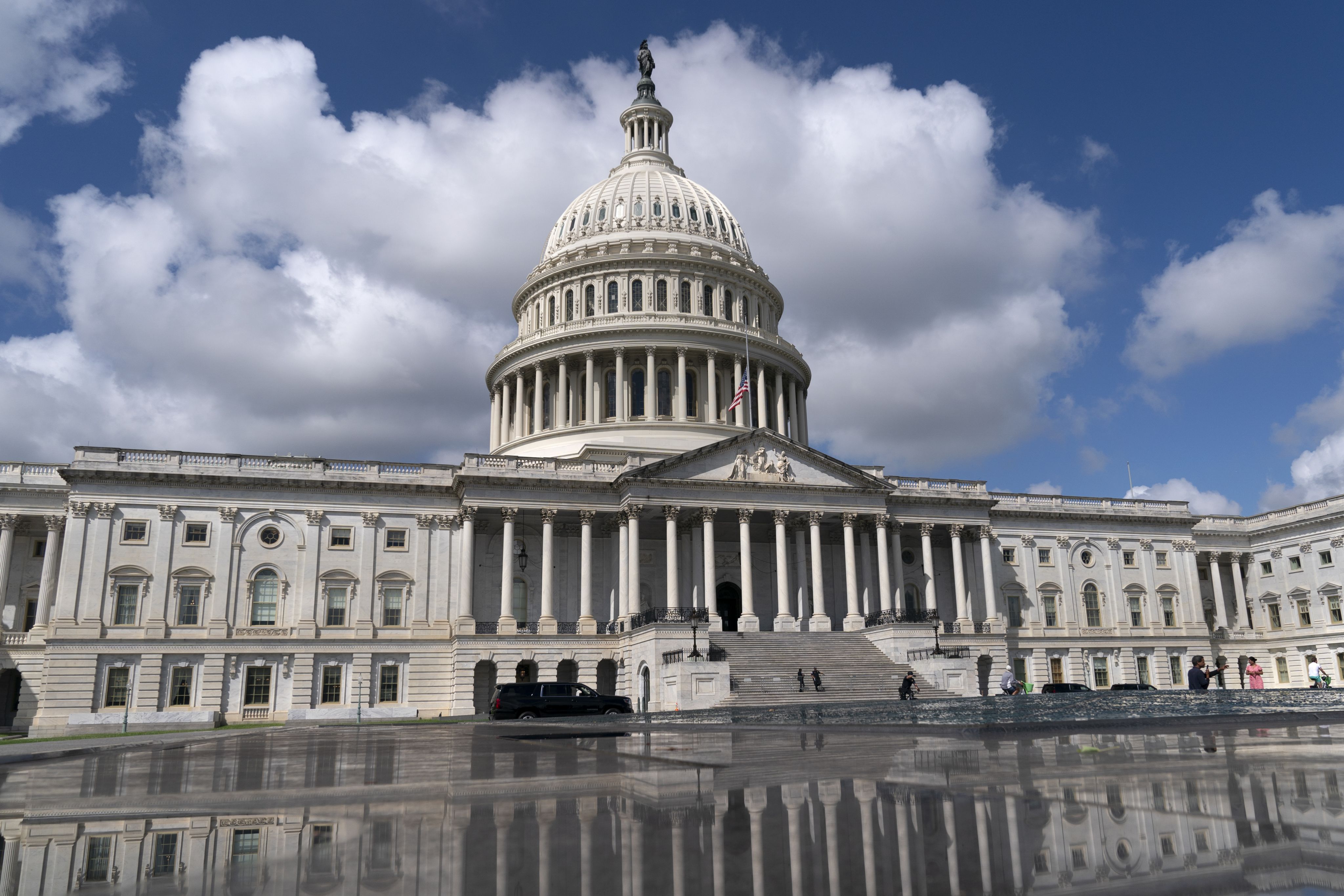
In addition to the risks of generative artificial intelligence, artists and record labels are also concerned about the rate new music is being created and uploaded to streaming platforms, boosted by advancements in AI.
“The music business already has what some would call a scale problem. There are 100,000-plus tracks added to Spotify every day. AI will only increase this number,” Robinson said. “If you’re in the marketing department at a label today, how do you market an artist and help them gain a fanbase when there’s seemingly endless options for fans? The job of breaking an artist has never felt so random and uncontrollable.”
Despite facing criticism, the use of artificial intelligence in the music industry holds potential benefits. With AI technology becoming increasingly accessible to the general public, it opens up new avenues for songwriting and production, presenting opportunities that were once limited to a select few, said Robinson.
This expanding accessibility not only transforms the creative landscape but also fosters inclusivity, allowing a broader spectrum of individuals to explore and contribute to the evolving realm of music.
This March 20, 2018, file photo shows the Spotify app on an iPad in Baltimore. (AP Photo/Patrick Semansky, File)
This March 20, 2018, file photo shows the Spotify app on an iPad in Baltimore. (AP Photo/Patrick Semansky, File)
Additionally, AI saves artists time and money, according to SIXFOOT5.
“Saving money and time, both of which are more invaluable now more than ever in the music industry today, is a huge factor to consider in this as well,” he said. “Take for instance, companies that want to license music for commercials and they want to spend the least amount of money but want desired results. A producer could potentially just use AI to create something quick, at little to no cost, and license it to make some - not much - income. This could potentially be a benefit.”
Many artists and producers, however, maintain the belief that artificially generated tracks cannot fully serve as a true substitute for songs created with human passion. The essence of human emotion and dedication, they argue, is what breathes life into music, making it a deeply personal and irreplaceable aspect of the creative process.
“[Artificial intelligence] is a powerful tool that if used well, I think it can be a learning tool and help inspire creativity,” said SIXFOOT5. “I think it’s a fascinating tool. I enjoy using it here and there, but I wouldn’t put my career solely in the hands of AI and a machine.”
